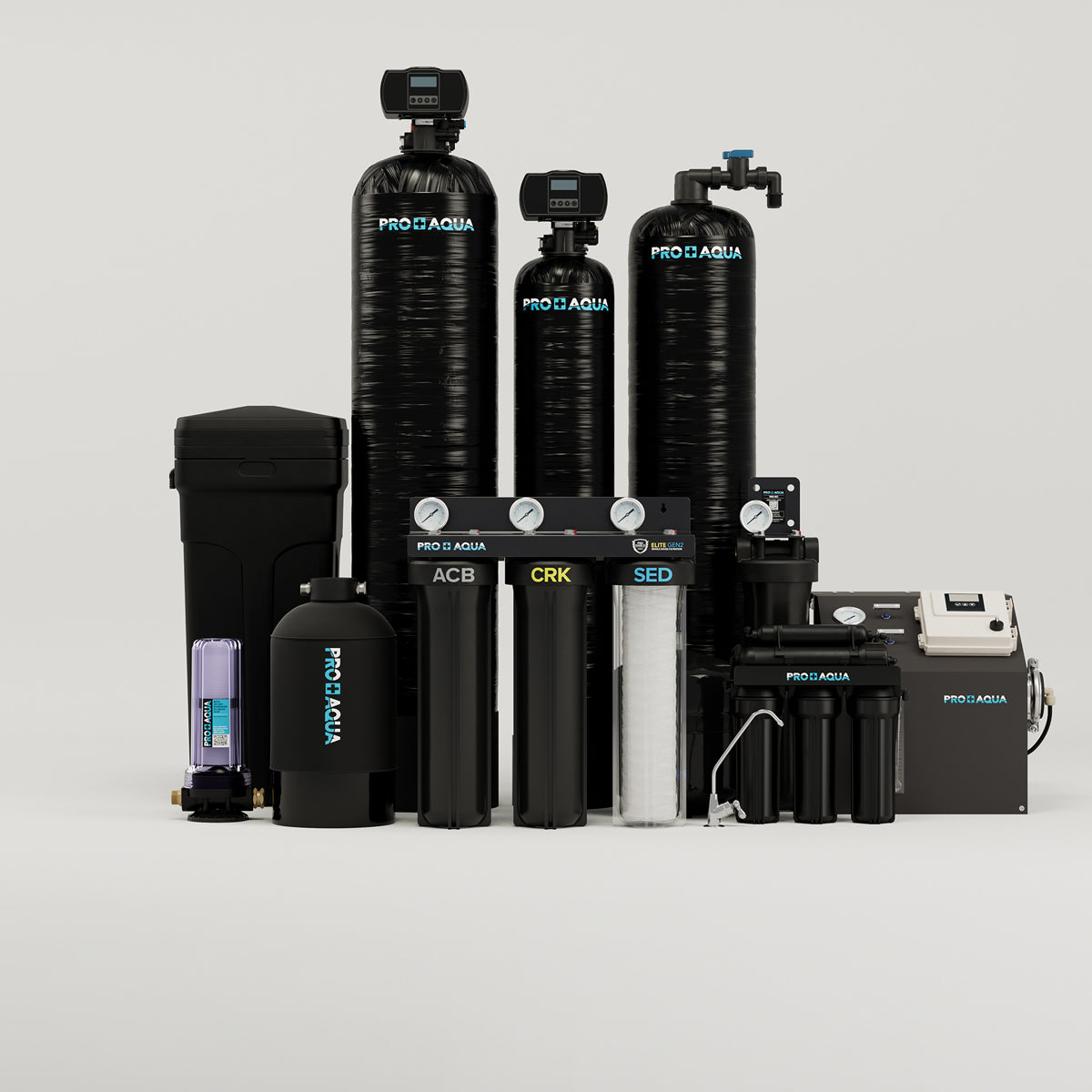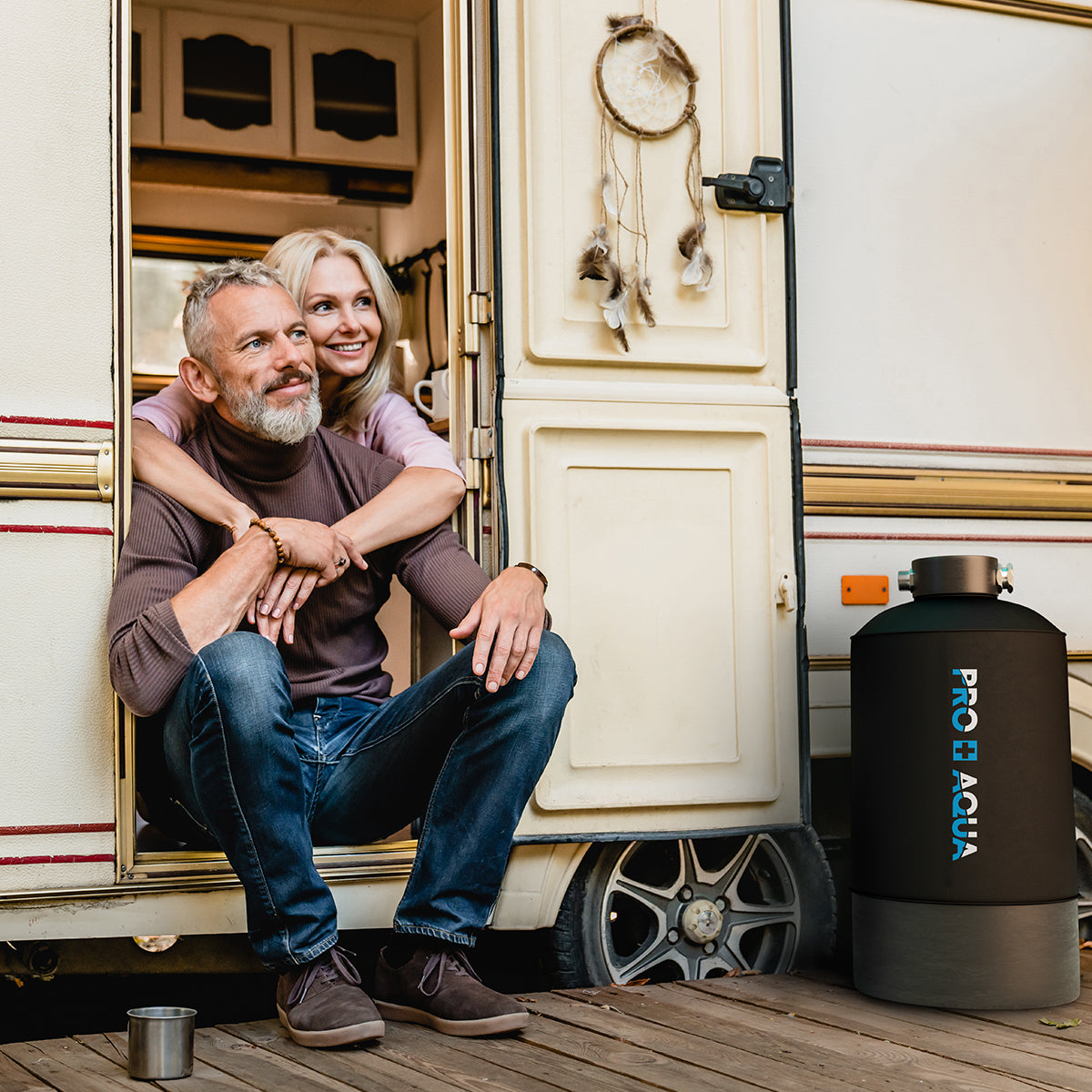Not all plumbing products and water system certifications are created equal.
From safety to performance, certifications like cUPC®, NSF, and IAPMO play a big role in what makes a product trustworthy. But what do they actually mean? And why should you care?
Let’s break it down.
What is cUPC®?
Definition and Meaning

The “c” stands for Canada, but this label means a product meets both U.S. and Canadian plumbing standards.
Why it Matters?
If you're buying faucets, pipes, toilets, or even a reverse osmosis system, cUPC® tells you it’s safe to install and won’t fail under pressure, literally.
Certified Products Include:
- Faucets
- Pipes
- Toilets
- Valves
- Water softeners
- RO (reverse osmosis) systems
Who Certifies It?
IAPMO (more on that in a bit) handles testing and certification. Products undergo rigorous evaluation to ensure they meet the Uniform Plumbing Code’s safety and performance requirements.
What is NSF Certification?

NSF stands for National Sanitation Foundation, but don’t let the name fool you. While it sounds like a small local agency, NSF is a globally recognized authority on public health and safety standards. They specialize in certifying products that touch what we eat, drink, and use daily, especially water.
What It Means
NSF certification is all about protecting your health. It guarantees that water filters, appliances, and plumbing components don’t introduce anything harmful into your drinking water.
When a product is NSF certified, it’s been independently tested for safety, quality, and long-term performance. Whether it's your kitchen faucet or a reverse osmosis system, NSF ensures the product won't leach harmful chemicals, contaminate your water, or break down under everyday use.
But NSF’s commitment doesn’t stop there.
They also:
- Inspect manufacturing facilities to ensure consistency in quality
- Retest products periodically to maintain certification
- Review labels and product claims for accuracy and honesty
This level of oversight gives you confidence that the product in your home performs exactly as promised.
Whether it’s removing chlorine, improving taste, or filtering heavy metals, NSF standards are tailored to specific water concerns.
Common NSF Standards
There are multiple NSF standards based on the product’s function. Common ones include:
- NSF/ANSI 42: Targets chlorine, taste, and odor
- NSF/ANSI 53: Focuses on reducing harmful contaminants like lead and VOCs
- NSF/ANSI 61: Ensures components in contact with drinking water are safe
Bottom line? If it’s going in your water, NSF certification should be your non-negotiable. It’s THE standard for water treatment products and a strong sign that a brand takes quality and safety seriously.
What Does ANSI Certification Mean Alongside NSF?

ANSI stands for the American National Standards Institute. It is a non-profit organization that oversees the creation of many U.S. industry standards.
ANSI itself does not test products. Instead, it approves the process used by organizations like NSF. So, NSF/ANSI means double-verified standards:
- NSF developed the standard and performs the product testing.
- ANSI has approved the standard development process, ensuring it meets U.S. requirements for public health, fairness, and technical accuracy.
Products Covered
NSF certification applies to a wide range of items, such as:
- Traditional water filters
- RO water filters
- Water softeners
- Kitchen appliances
- Plumbing components
- Bottled water and food equipment
Whether you’re considering an NSF certified water filter or simply checking a product's NSF certificate, understanding what it means is key to informed buying.

What is IAPMO?
Overview of the Organization

IAMPO stands for the International Association of Plumbing and Mechanical Officials—a key player in ensuring plumbing product safety.
Roles and Functions
IAPMO plays two main roles:
- Developing plumbing and mechanical codes—like the Uniform Plumbing Code
- Certifying products—as an independent testing body that ensures products meet code and safety standards
Products labeled ‘IAPMO certified’ have passed stringent evaluations.
Certification Services Offered
IAPMO provides certification for:
- Plumbing fixtures
- Mechanical components
- Water treatment systems
It also issues the cUPC® mark, making it both a certifier and a code authority. Compared to other organizations, IAPMO offers a unique blend of regulatory and testing expertise.
| Category | cUPC® | NSF | IAMPO |
| Purpose and Scope | Code compliance for plumbing fixtures | Health and sanitation standards, especially for water and food contact | Oversees codes and certifications like cUPC® |
| Geographic Relevance | Required in the U.S. and Canada | Recognized globally for food and water safety | Required in the U.S. and Canada |
| Types of Products Covered | Pipes, toilets, faucets, water softeners | Water filters, kitchen equipment, sanitation products | A broad range, including IAPMO certified products and systems |
| Certifying Bodies | Handled by IAPMO | Issued by NSF International | IAPMO certification and cUPC® are both managed by IAPMO |
How to Read and Verify These Labels
Always check for official logos or marks on the product packaging or label. Each certification body maintains an online database where you can verify the status of certification:
These tools help ensure you're purchasing safe, compliant equipment.

Why These Certifications Matter
Whether you’re installing a water softener, upgrading fixtures, or shopping for a filter, these labels matter for:
- Legal Compliance: Meeting building codes and regulations
- Health and Safety: Avoiding contaminants and ensuring clean water
- Trust and Transparency: Certifications boost consumer confidence and signal product reliability
If a product lacks proper certification, it may not be allowed by local plumbing codes or could pose safety risks.
Conclusion
Understanding certifications like cUPC®, NSF, and IAPMO helps you make safer choices with your water. From code compliance to health standards, each label plays a critical role. Next time you need a new water softener or filter, check for these trusted certifications. These products provide peace of mind through effective performance and protection.
At PRO+AQUA, we believe in delivering pure water, nothing else. That’s why our whole-house and reverse osmosis systems are built from NSF-certified filters and components, ensuring that the final point of contact with your drinking water meets the highest safety and quality standards.

The 100 GPD 5-Stage Reverse Osmosis Water Filter System removes up to 99% of household contaminants and easily connects to fridges, water dispensers, ice machines, and more. Its 6-gallon tank is ideal for medium to large homes and small businesses.

The Four System Softener, Filtration, and RO Bundle also removes unwanted contaminants, including sediments, chemicals, and heavy metals. It is ideal for homes with 3-4 bathrooms that source city, municipal, or well water.
When you’re buying water systems, look for the cUPC®, NSF, or IAPMO label. These marks mean your product is:
- Safe
- Compliant
- Tested
- Trusted
Your water deserves better. So do you.
Discover more trusted house and portable water solutions with PRO+AQUA’s filter systems and softeners.







Leave a comment
This site is protected by hCaptcha and the hCaptcha Privacy Policy and Terms of Service apply.